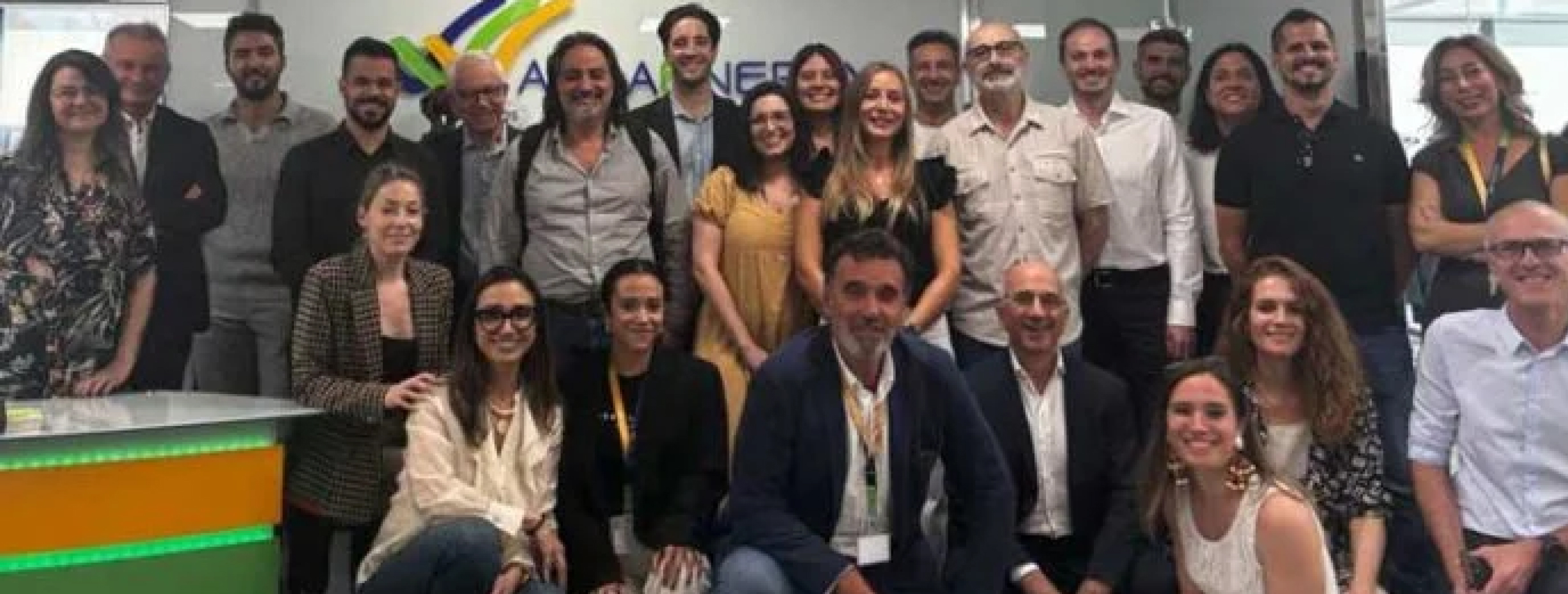Author: Blog
-

Phoenix Biosolutions Revolutionizes the Agricultural Sector
Phoenix Biosolutions, the new company founded by the team of entrepreneurs and executives who turned microalgae biotechnology into a key industry for global agriculture, officially announces its launch with a disruptive proposal that redefines access to agricultural innovation. Unlike the traditional product-based model, Phoenix introduces a Tech as a Service (TaaS) approach, which puts technology…
-

AlgaEnergy Appoints Julio Pérez Romero as Chief Executive Officer
The De Sangosse Group strengthens its commitment to AlgaEnergy by naming Julio Pérez Romero as CEO. With more than eight years of experience in the Group, Julio steps into this strategic position with a clear mission: to consolidate AlgaEnergy’s unique identity and position its microalgae biotechnology as a global leader in biosolutions. Madrid (September 23,…
-

Women in Agriculture: 24th Edition Featuring Mariangela Hungria, Embrapa
Dr. Mariangela Hungria is a Brazilian agronomist and microbiologist with Embrapa Soybean, renowned for her pioneering research in biological nitrogen fixation. For more than forty years, she has worked to reduce agriculture’s dependence on chemical fertilizers by promoting the use of beneficial microorganisms, delivering both economic and environmental benefits. Her research on rhizobia and plant…
-
ACFI Urges Policy Reforms to Strengthen India’s Agrochemical Sector
ACFI Urges Policy Reforms to Strengthen India’s Agrochemical Sector The Agro Chem Federation of India (ACFI) has called on the Government of India to introduce a comprehensive set of policy measures to boost domestic agrochemical manufacturing and reduce reliance on imported technical ingredients. The appeal comes at a time when India has emerged as the…
-
Government Takes Action to Protect Bees from Pesticides — What It Means
Government Takes Action to Protect Bees from Pesticides — What It Means The UK government has published new guidance aimed at making emergency use authorisations for pesticides safer for pollinators such as bees. As of 11 September 2025, applications for emergency authorisation will now have to fully account for the risk posed to bees and…
-
OneRicePH project and 25 new rice lines in the Philippines
OneRicePH Project: 25 New Rice Lines Moving Closer to Farmers in the Philippines Philippines — September 2025. The OneRicePH project, a collaborative initiative led by the International Rice Research Institute (IRRI), the Department of Agriculture-Philippine Rice Research Institute (DA-PhilRice), and the University of the Philippines Los Baños (UPLB), has marked a significant milestone by advancing…
-
Driving a New Era in Breeding: AI-Powered Phenotyping at CIMMYT
Overview: CIMMYT is integrating artificial intelligence, computer vision, and mobile devices to make phenotyping—measuring plant traits—faster, more scalable, and more objective for dryland staple crops across Africa. This approach reduces labor, boosts consistency, and accelerates breeding timelines from field data capture to decision-making. What’s new: Smartphone-first phenotyping: Breeders capture geo-referenced field images on phones/tablets; AI…
-
India Cuts GST on 12 Bio-Pesticides to 5%: A Boost for Sustainable Agriculture
India Cuts GST on 12 Bio-Pesticides to 5%: A Boost for Sustainable Agriculture Introduction In a landmark decision, the Government of India has reduced the Goods and Services Tax (GST) on twelve key bio-pesticides from the existing rate (typically 18%) down to 5%. This move is expected to significantly lower the cost of bio-pesticides for…
-
How LATAM Countries Are Adapting and Adopting New Technologies in Agriculture
What’s Being Adopted (and Why It’s Sticking) Drones & aerial services: Spraying, scouting, and mapping delivered by local contractors lower skill and ownership barriers while improving timing and coverage. Precision & digital agriculture: Guidance, rate control, telemetry, and app-based decision support cut input use and stabilize yields. Biologicals mainstreaming: Biostimulants and biopesticides are paired with…
